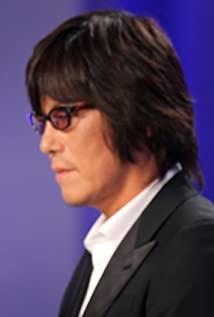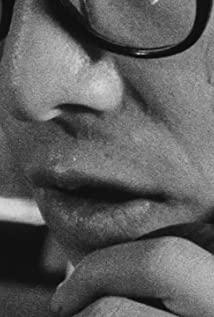As a typical youth idol theme film, "Love Letter" shows strong typographical features in both the play and the means of expression. This feature lies first in the choice and grasp of the subject matter, and secondly, It is a finely crafted audio-visual language.
A rather literary story with a touch of sadness and a lush atmosphere: Bozi wrote to the original site of his fiance who was wrecked by mountain climbing, but unexpectedly got a reply from another mysterious person named "Fujii Tree". During the process of visiting the mysterious person, he gradually unearthed Hiroko revealed a secret that was quite surprising: the woman Fujii who replied to the letter was actually a classmate with the same name and surname as his fiancé. And the appearance of female Fujii is almost exactly the same as Hiroko. Surrounding the mysterious green years of her fiance, some feelings were discovered intermittently, and Hiroko completed her final farewell to the deceased.
It can be said that in "Love Letter", the whole story is not rushed and slightly suspenseful. Iwai Shunji always controls the story at a very restrained speed. The letters between Hiroko and female Fujii come and go, male Fujii's. Teenage time is gradually full, leisurely and dull, but the small waves never stop: the delicate quasi-triangular relationship between the current boyfriend Akiba, Fujii and Hiroko, Hiroko and female Fujii want to meet but can't finally meet the crowd helpless, male Fujii vs female Fujii campus affection. The narrative combination of "Love Letter" is very much in line with the psychological expectations of the audience, especially the audience at the middle school stage. The setting of the youthful and romantic plot in the plot and the characters of the same name and the same appearance of men and women intertwined with reality and memories are all part of the film's A lot of romantic atmosphere is added. The actors include Nakayama Miho, a jade girl idol who was on the same level as Sakai Noriko and Matsushima Nanako, the powerful Xiaosheng Toyokawa Etsu, and the newly debuted flower boy Takashi Kashiwahara. It can be said that it is the most perfect element to satisfy the superficial layer of youth idol films.
In addition to the plot and actors, the means of expression of "Love Letter" has become the key to whether the film can successfully create a light feeling. What Yang fell down was the feeling of loneliness covered with black clothes but unable to cover up the contrast, which immediately highlighted the loneliness of the characters. This is also a tone that shrouds the entire film. And in the memory section of the girl Fujii, in the library scene, the girl Fujii looks at the boy Fujii holding a book and standing in front of the window, a scene that is regarded as a classic, in the middle shot, the sun shines through the window with the curtains blown open by the wind It is spread into the inch of the place where Fujii Tree is standing, and in the middle of the strong contrast between light and dark stands Fujii Tree (Kashiwahara Takashi), which has become a symbolic classic picture of beautiful boys on campus. There is no strong action in the shots of the film, each scene is plain, directly facing life itself, with soft tones, and the use of light is extremely natural and beautiful, except for a few environments with strong contrasts with characters, almost all shots are With the "ordinary" structure, bit by bit, the faint taste of life permeates the screen and is handed over to the audience. In addition, the soundtrack of "Love Letter" is also very suitable for the style of the video. It is sad but not sad, green and elegant at the same time. In terms of the entire audio-visual construction of "Love Letter", it can be said that it perfectly interprets the effect of the work, which is similar to some representative works of Japan that belong to the theme of youth idols, such as "Calling for Love at the End of the World" and "Honey and Four-leaf Clover" In comparison, the connotation of cruelty has been restrained, but it has not been reduced to a metaphysical narrative for youth narrative. "Love Letter" has done enough surface work, and the aura inside is not much.
When discussing the ideological theme conveyed by "Love Letter" as an idol-themed work, we have to mention an epoch-making argument in the history of film criticism theory. Christian Metz, a pioneer of film semiotics from France "Signifier", Metz pointed out that the film, as an "imagined signifier" between the audience and the screen, played a role in allowing the audience to obtain a certain degree of psychological compensation through viewing the perfect plot missing in reality, thereby further identifying with the present world. function. This theory in "Love Letter" can basically be expressed as a dual recognition of inside and outside the screen. On the internal level, Hiroko realized the non-existence of the male Tengjing, who had long been absent, by communicating with the real female Fujii. Until the mystery was revealed, this realization was highly successful. Off-screen, it is the audience's appreciation of the story itself, more or less projected to a sensitive corner of their own soul, which resonates to varying degrees.
No matter which of the two recognitions, it is inseparable from the director's interpretation of the two themes of "love" and "death" throughout the film. There may be "imagined signifiers" for the audience or just virtual signifiers for the characters in the play.
In "Love Letter", a very important point is that Bo Zi's lover is a dead person, and "love" is presented in the state of "death" from the beginning, which is the case in objective existence. And Shunji Iwai did not stop at such a level. He borrowed another mysterious "widow" to establish Hiroko's love transfer, and wrote to the place that should be heaven, but got a reply, the "love" here is no longer Quiet due to the "death" of her fiancé, it continues in the correspondence in another special way, and the source of love or another unrequited love is stirred up in the old memories of the past: Finally, the female Fujii understands that she has been being Male Fujii is secretly in love without knowing it. The library card with the name of "Fujii Tree" written on it becomes the eternal witness of "love". At the beginning of the chapter, Iwai Shunji put love and death in the solemn position of the memorial ceremony in the snow, but it was soon In the subsequent development of the story, the shackles of "death" were personally stripped away, and "love" was pulled beyond the boundaries of time and space and sublimated. Here, "death" is eternity in the material sense, while "love" is immortality in the spiritual level. Through this interpretation of the relationship between "love" and "death", "Love Letter" can easily establish the connotation foundation on which to exchange resonance, and thus become an ideal example for interpreting Metz's "imagined signifier" theory. On the other hand, the repercussions and word of mouth after the film's success have confirmed that the film's text and theoretical prophets really complement each other.
"Love Letter" is a film phenomenon that is talked about with great relish. It goes without saying that it has a positive effect on Japanese youth idol films. The thinking and expression of the proposition of life make it break away from the general meaning or the genre characteristics of youth idol movies in general situations, and become a classic text with multiple meanings. Therefore, not only as a commemoration of youth, but also as an example of a film worthy of careful reading, "Love Letter" deserves to play its role. This is a necessary condition for the existence of the so-called "classic".
View more about Love Letter reviews











